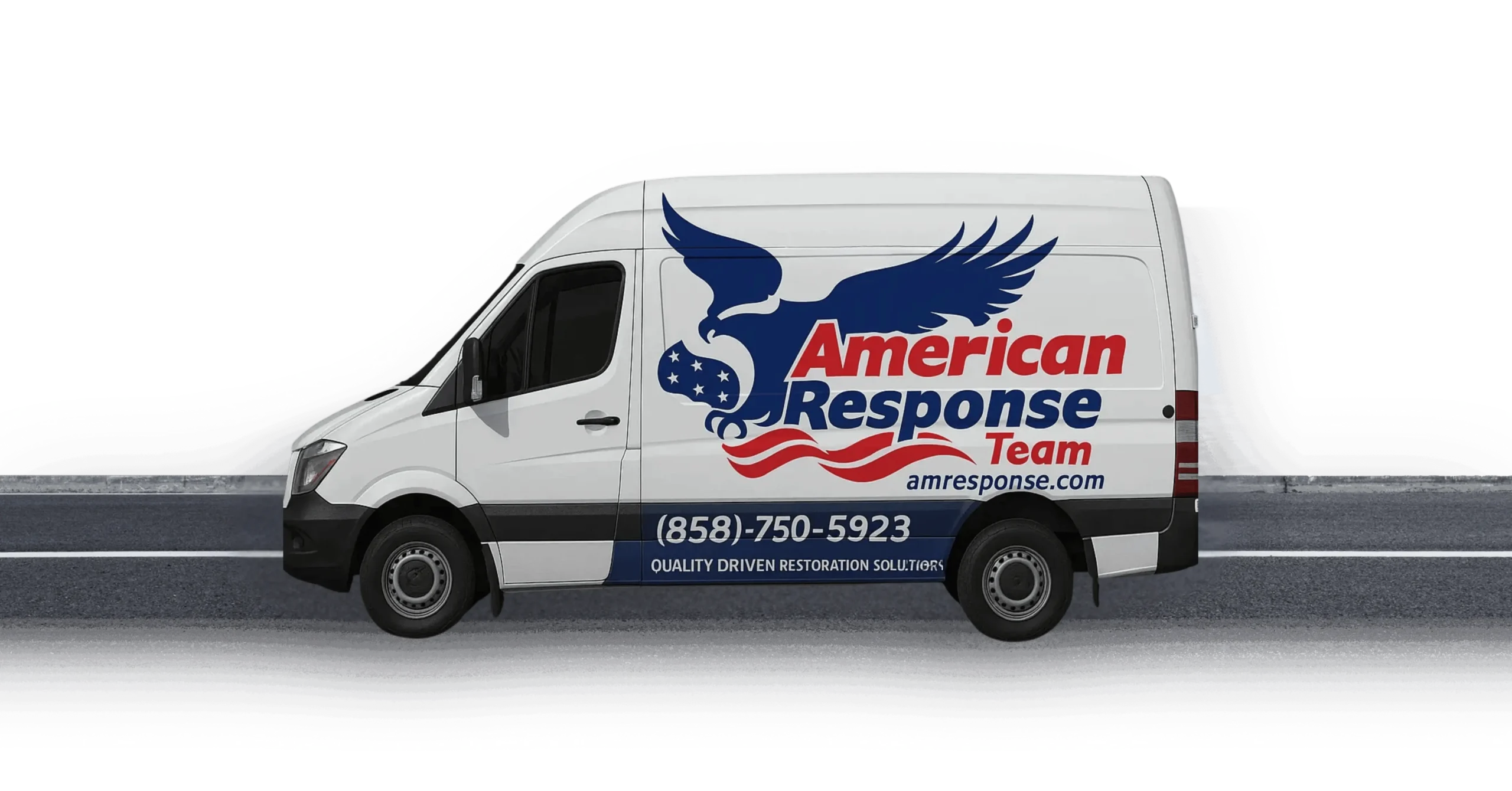If you’ve found out your home has a mold problem, your mind is probably racing. You’re thinking about your family, your health, your belongings, and maybe most of all, whether you have to pack up and leave while the cleanup happens.
The truth? It depends. And that uncertainty can be frustrating.
You might be a parent trying to keep your kids safe. Maybe you’re caring for an elderly parent or someone with health issues.
Or maybe you’re just trying to figure out how to afford a hotel stay if leaving becomes necessary.
All of that is valid. Mold isn’t just a home maintenance issue, it’s a health and lifestyle issue. And we completely understand how overwhelming that feels.
At American Response Team, mold remediation is one of our core services. We’ve helped hundreds of families through this exact situation.
We know when it’s safe to stay, when it’s better to go, and how to make the process as stress-free as possible.
In this blog, we’ll walk you through what to expect during mold remediation, how to make the right decision for your household, and how to get help navigating the insurance and safety side of things.
What Is Mold Remediation?
Let’s start with what mold remediation really means.
Mold remediation isn’t just cleaning mold off a wall. It’s a process that includes:
- Finding and stopping the source of moisture
- Sealing off affected areas to prevent spread
- Removing damaged materials (like drywall, carpet, or insulation)
- Using air filtration and negative air pressure to contain spores
- Treating surfaces with antimicrobial solutions
- Drying out the area thoroughly
- Restoring and rebuilding what was removed
It’s a careful, multi-step process designed to protect you and keep mold from coming back. That’s why it’s more involved than just spraying bleach and hoping for the best.
Read more about our approach to mold cleanup
Is It Safe to Stay in Your Home During Mold Remediation?
1. Where the Mold Is Located
If the mold is limited to one room or small area, and your contractor sets up proper containment (like plastic barriers and HEPA filtration), it may be safe to stay in the rest of the home. For example:
- Mold in a spare bedroom or attic = possibly safe to stay
- Mold in the kitchen, only bathroom, or HVAC system = probably best to leave
2. The Size and Scope of the Problem
If you’re dealing with widespread mold that covers multiple rooms, floors, or walls, staying home usually isn’t safe or practical. Large-scale remediation often involves:
- Cutting out drywall
- Pulling up carpet
- Running loud, industrial drying equipment
- Using strong cleaning solutions
That can make parts of your home unlivable for a few days—or more.
3. The Health of Everyone in the Home
According to the EPA, mold exposure can be risky—especially for:
- Children
- Seniors
- People with asthma, allergies, or other lung issues
- People with weakened immune systems
If someone in your household falls into one of these categories, even a small amount of airborne mold spores can be harmful. In these cases, we usually recommend temporary relocation, even for minor jobs.
What It Feels Like to Stay During Remediation
Let’s be honest. Even when it’s technically safe, staying home during mold remediation can still be disruptive.
You might deal with:
- Sealed-off rooms that limit access to parts of your home
- Plastic barriers in hallways or doorways
- HEPA air scrubbers running for hours at a time
- Drying fans and dehumidifiers creating constant noise
- Work crews moving in and out daily
For some people, it’s tolerable. For others—especially families with kids or people who work from home—it can feel like living in a construction zone.
When You Absolutely Shouldn’t Stay
We strongly recommend leaving the home during remediation if:
- The mold is in your HVAC system (airborne spread is likely)
- Remediation affects your only bathroom or kitchen
- The mold is widespread and requires removing multiple walls or ceilings
- You or someone in your home is experiencing mold-related health symptoms
If you’re not sure how serious your case is, that’s what we’re here for. Our team will walk the space with you, explain what’s involved, and help you decide what’s safest.
Will Insurance Cover Temporary Housing?
Sometimes.
If mold damage is tied to a covered event—like a burst pipe or storm—your homeowners insurance might pay for temporary housing during remediation. But coverage varies by policy.
That’s where American Response Team adds value. We’re not just mold contractors—we’re insurance experts. We work directly with your provider, speak their language, and use the same software (Xactimate) to price everything fairly.
We’ll help you figure out:
- If your mold issue is linked to a covered event
- How to document the situation for a claim
- Whether temporary housing may be reimbursed
How to keep your out-of-pocket costs low
What If You Want to Stay?
If you decide to stay, or have no choice but to stay, here are a few tips to protect yourself:
Seal Off the Work Area
Don’t Enter the Work Zone
Keep Kids and Pets Away
Use a Separate Air System if Possible
Avoid using central AC or heating if the mold is near ductwork. You don’t want to spread spores throughout the house.
What Happens After Remediation?
After cleanup, we’ll run air quality tests (either in-house or through a third party), check moisture levels, and repair or rebuild any damaged areas. We’ll also walk you through how to avoid future mold problems, like:
- Fixing plumbing leaks right away
- Improving ventilation in humid rooms
- Using dehumidifiers in basements or crawlspaces
- Regularly inspecting under sinks or behind appliances
And if you ever have questions, we’re always a phone call away—even after the job is done.
What Makes American Response Team Different?
We know mold. But more importantly—we know how mold impacts your daily life.
Here’s what sets us apart:
- We specialize in mold and insurance restoration. It’s not just part of what we do—it’s what we focus on every day.
- We’re an approved vendor for major insurance companies. That makes your claim process faster and less stressful.
- We use industry-standard pricing so you’re not overcharged—and your insurance company agrees with the cost.
- We put your safety first, always. We’ll never tell you to stay in your home if it isn’t safe.
- We act fast—our emergency response is designed to stop mold before it spreads.
You don’t have to guess or second-guess. We’re here to guide you through every step, from inspection to final walkthrough.
The Bottom Line
So, can you stay in your home during mold remediation? Sometimes yes. Sometimes no. It depends on the mold’s location, how big the problem is, and who lives in the house. The best way to decide is to have a professional assess the situation and walk you through it.
Whatever the answer, you deserve clear information, honest recommendations, and a team that puts your health and safety first.
Need Help Deciding What to Do?
We’re here to make the process easier. We’ll help you get your home and your peace of mind back to normal.

